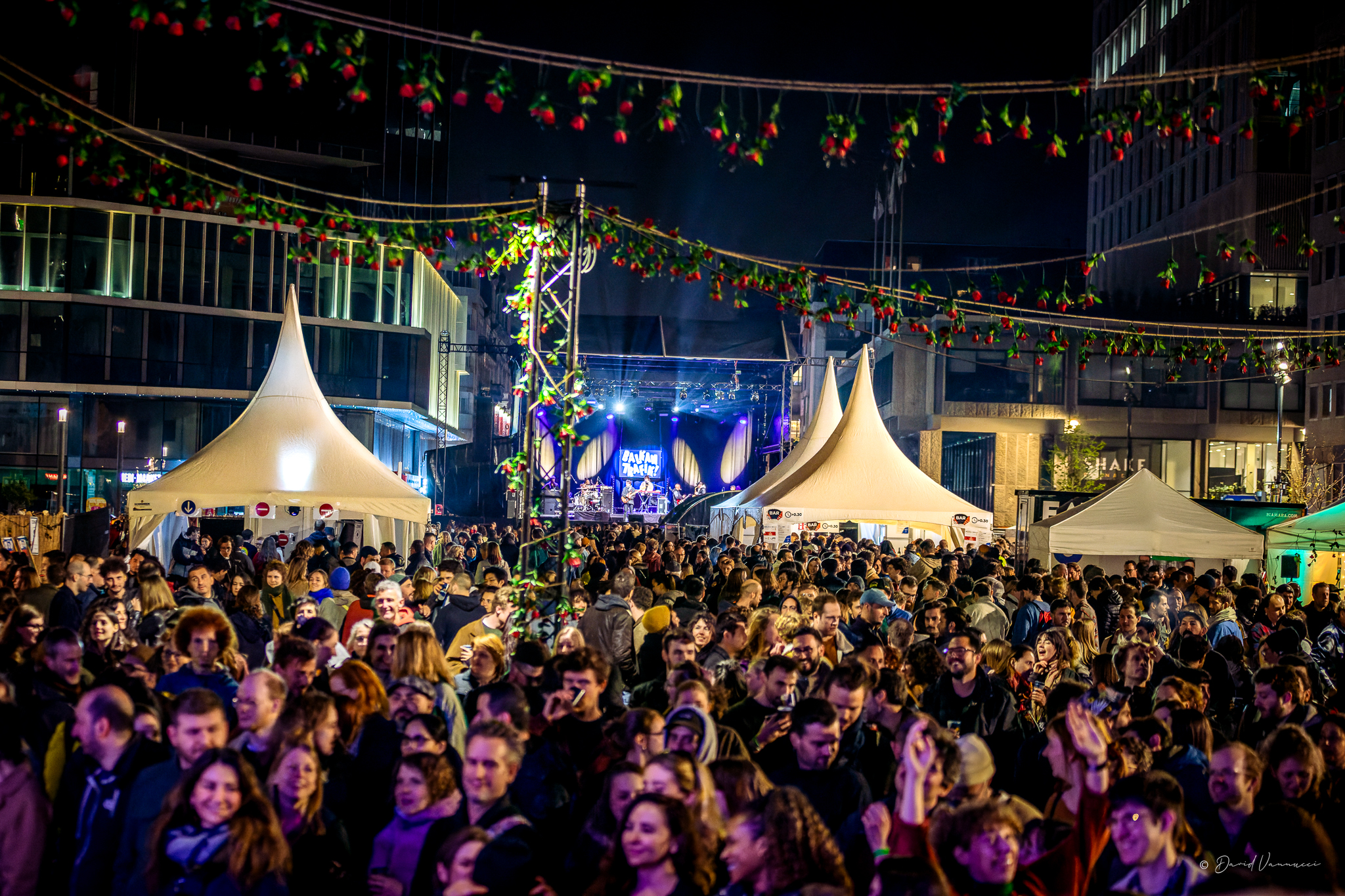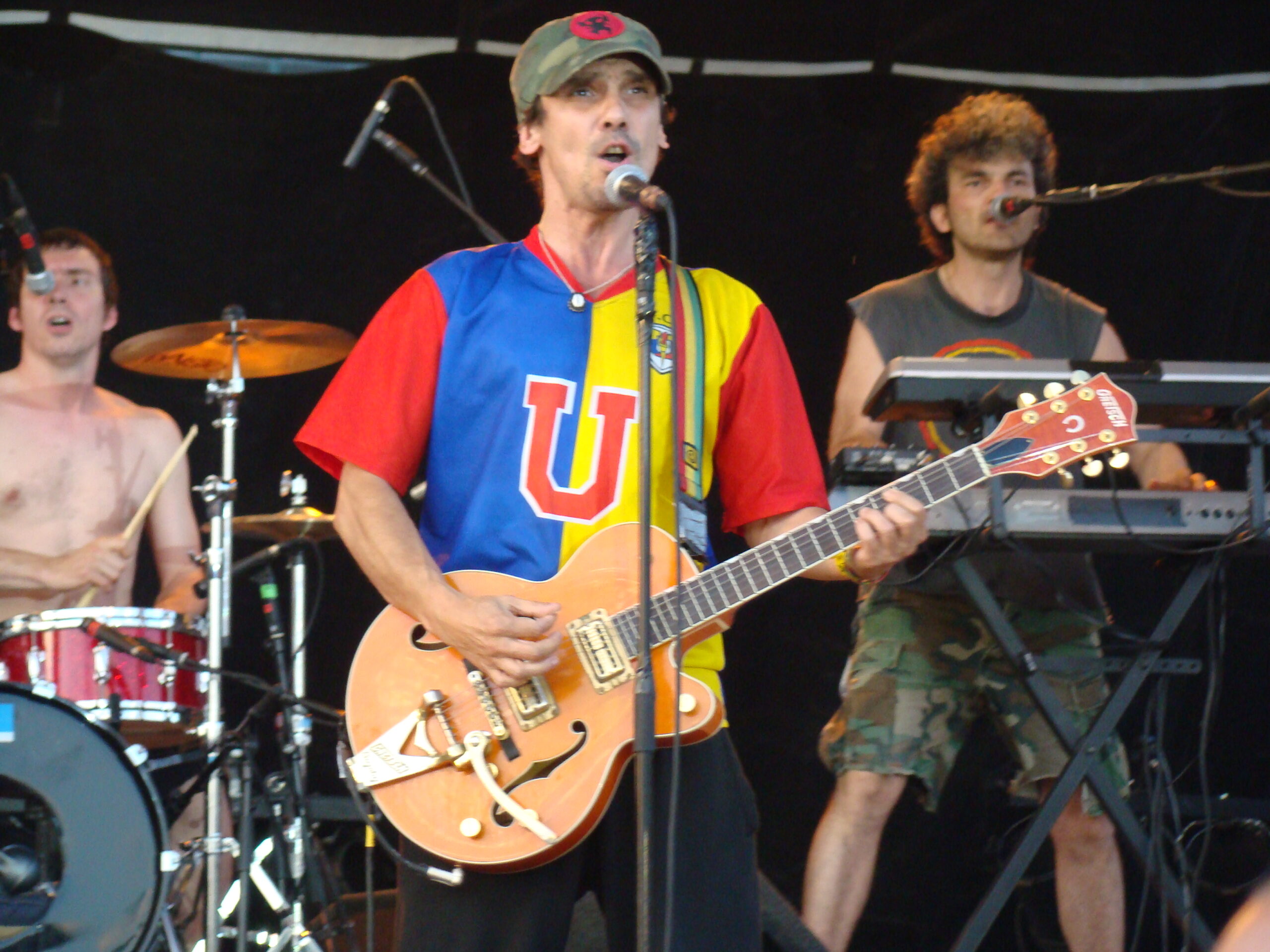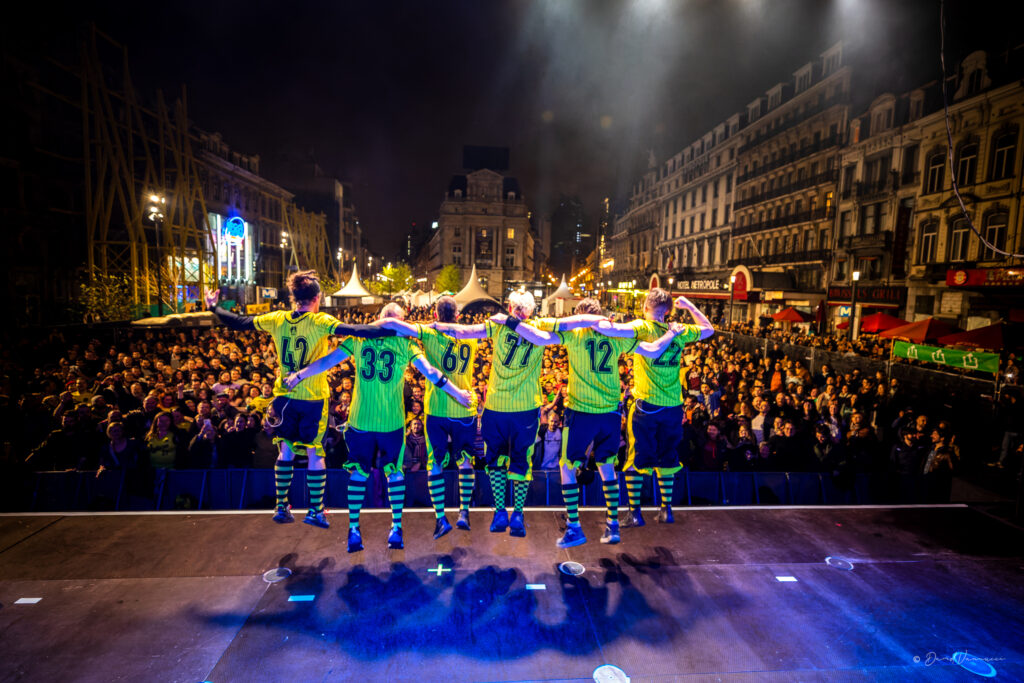The Balkan Trafik Festival returns to Brussels' Place de Brouckère for its 18th edition on Thursday, with headliner Manu Chao set to play an acoustic set. The festival closes on Saturday with Ukrainian group Kalush Orchestra, winner of the 2022 Eurovision Song Contest.
After nearly 20 years of organising Belgium's biggest Balkan celebration, freelance TV director and founder Nicolas Wieers told the Brussels Times about the extraordinary story behind the creation of the festival.
"After work, when I was a producer for Canal+ in Belgium, we'd often go for a beer and eat fries in a snack bar run by a guy with an unusual accent. Then one day I asked him, 'Where are you from?' He replied that he was an Albanian speaker from Kosovo and that he fled the war," said Wieers.
"After that, we chatted all evening; he drew me a map of the Balkans on a tablecloth, showed me where Kosovo and other Balkan countries are located, and explained the geopolitical and geographical situation of the region. In the end, he told me that if I wanted to find out more, his brother lived in Pristina, the capital of Kosovo, and could host me there," added the founder.
It was after this life-changing trip there, where he met students from the University of Pristina, that Wieers, armed with his camera, immersed himself in Balkan culture for one month. Despite the aftermath of the conflict, he found their dynamism and positivity impressive. On his return, he wondered, "What can I do to put the spotlight on these young people from the Balkans?" For him, the answer was obvious: "Music."
'Trafic de culture'
Balkan Trafik is essentially a multidisciplinary festival "that seeks to bring communities together through the arts," said the founder. The objective is to programme mainly Balkan artists, but especially to appeal to the other European communities.
Moreover, the name 'Balkan Trafik' was not chosen randomly. Wieers' aim was to draw attention to the fact that the Balkans, despite the various illegal trafficking operations that are rife in the region, are, above all, a trafic de culture.

The Balkan village at Place de Brouckère in 2023. Credit: Balkan Trafik Festival / David Vannucci
Indeed, the festival is a veritable cultural bath of south-eastern Europe, as it offers a wide variety of musical genres, from rock to hip-hop, via punk, electro, fusion, brass bands, and traditional music. Everyone should find the right match for their tastes.
This year's headliner is Franco-Spanish artist Manu Chao. According to Wieers, the artist epitomises and espouses the festival's philosophy. "He's got that anti-globalisation side that fits in with Balkan Trafik. I didn't choose Manu Chao; Manu Chao chose Balkan Trafik."
What's more, "he knows the region very well," explained Wieers. In fact, the two men met by chance in Serbia when Manu Chao came to play his guitar along a river to support a campaign against the construction of mini-power stations. "Once we had him at the festival, it was a way, thanks to him, to put the richness of the Balkan region in the spotlight," he added.

Manu Chao performing a free concert in Bondy in 2008 for the fête de la musique and the 20th edition of the "Ya d'la banlieue dans l'air" festival. Credit: Wikimedia
The Ukrainian group Kalush Orchestra, symbolising the dynamic youth of the Ukrainian music scene, is also eagerly awaited. Fusing hip hop with traditional Ukrainian instruments and beats, the group won the 2022 Eurovision Song Contest with their track Stefania.
More than just music
But at Balkan Trafik, music isn't everything. Far from it. That was also the aim of this festival for Wieers. There will be a Balkan village at Place de Brouckère to allow festival-goers to taste the Balkan culture.
Revellers will be able to enjoy Balkan-flavoured food trucks, a regional wine bar, dance workshops, photo and comic book exhibitions, as well as meetings with local communities. Plenty of these activities will be free, including a workshop with 'Alice in WonderBand', a Serbian duo of performers specialising in body music and body percussion.
As last year, the organisers are expecting around 6,000 festival goers.
For more information on the Balkan Trafik Festival, see here.

